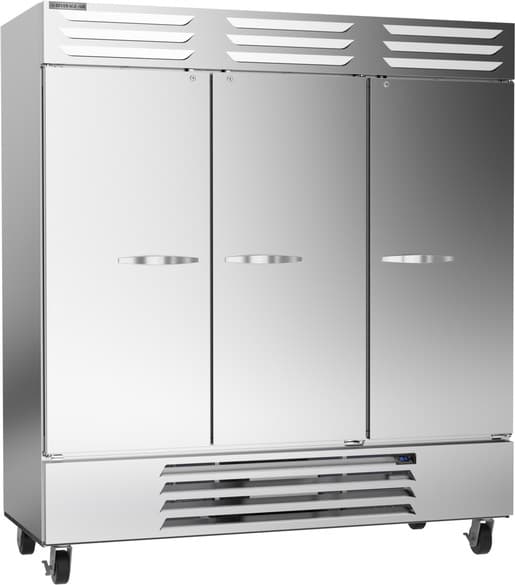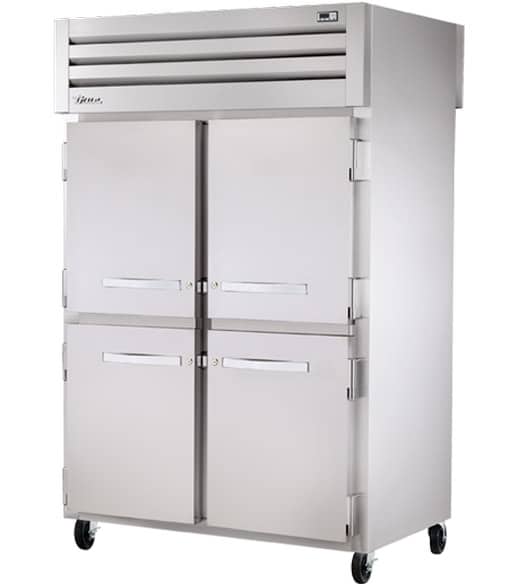Stainless Steel vs. Aluminum Refrigeration
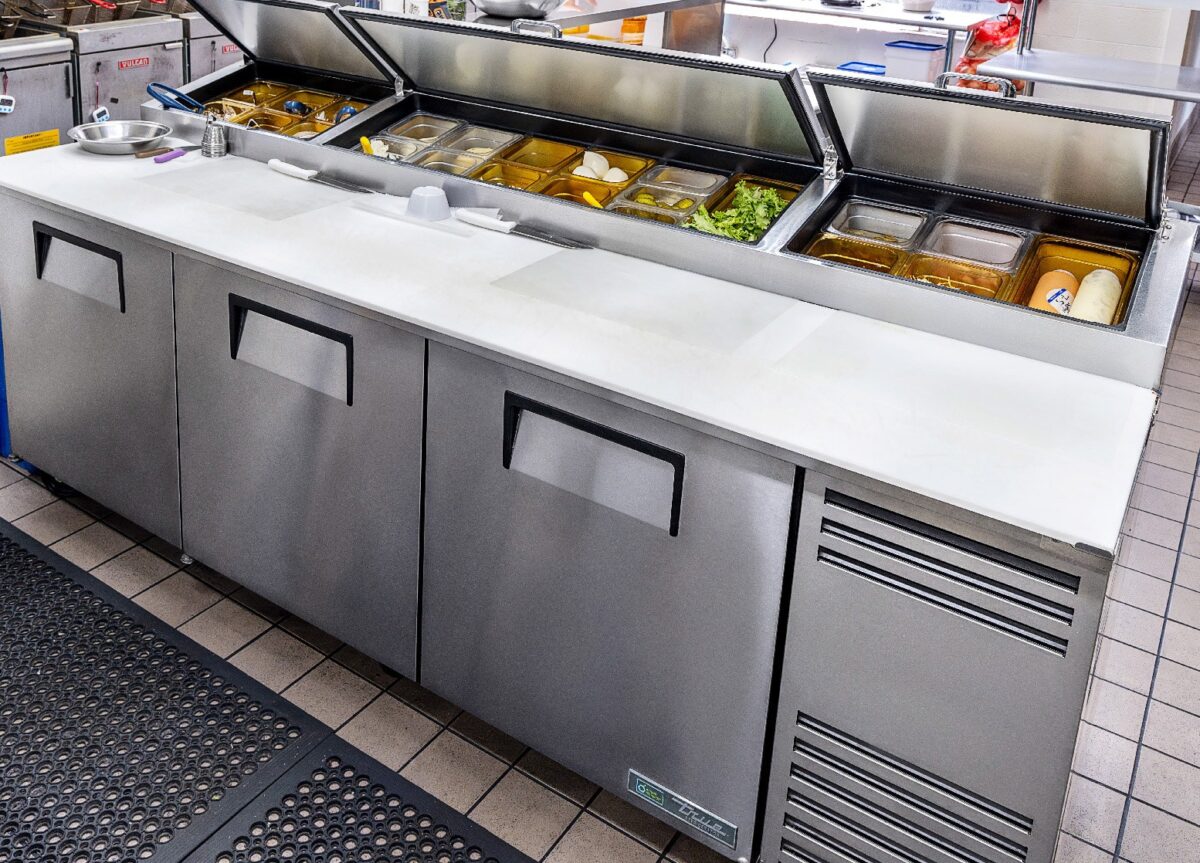
You decided that you need a new refrigerator or freezer. The first thing you did was measure the spot in your kitchen—checking what will fit perfectly with just enough clearance space. Now, you’re scrolling through every refrigeration retailer that pops up in your Google search and wondering why there’s a price-swing of ~$10,000 between units that look virtually identical in the pictures.
The difference is pretty much down to one question: stainless steel or aluminum?
Stainless Steel
✅ Durable
✅ Hygienic
✅ Long-Lasting
Aluminum
✅ Affordable
✅ Lighter
✅ Eco-Friendly
Why Metal Matters
Covering a refrigerator with stainless steel is expensive, while using aluminum is relatively cheaper—everyone can generally guess this much. What might come as a surprise though is that some of the industry’s most premier, flagship units, like T-49 Series from True®, often have both materials found throughout the unit’s construction.
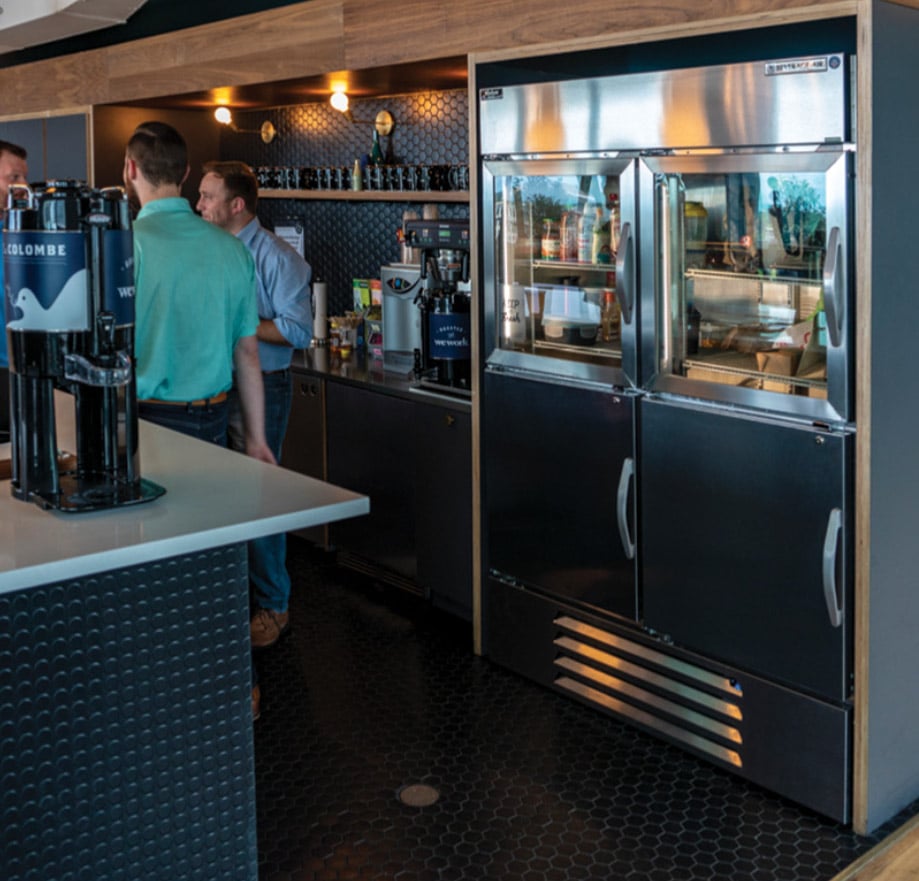
Those hoping for the most affordable solution possible will want a unit with as much aluminum as possible. Those with a deeper budget that want all the looks and reliability for the long-term will inevitably pay for all-stainless steel models. But, most of us will fall somewhere in between: we want practical, sustainable efficiency and the best bang for our buck.
Whether you fall into the affordable, the luxurious, or the practical camp, you’ll find that metal matters most in 3 separate zones of your refrigerator or freezer: the doors, the exterior sides, and the interior perimeter.
The Doors
Those with decision fatigue already setting in will rejoice when it comes to choosing this section’s metal material for your refrigerator or freezer: the only commercial door option is steel.

In some sections of specialty refrigeration, like chest freezers or milk coolers, you’ll see black or white powder-coated steel, or even vinyl-covered steel, but the metal underneath is still the same, durable steel as the bright, gray, stainless options you see in the upright and undercounter corners of this category. The reason is simple: steel can take a punch.
Whether this is your first commercial kitchen or you’re an industry veteran, it’s not hard to imagine all the dents and dings your refrigerator door will endure—carts and pans scratching against it, splashing sauces and all sorts of ingredients all over it—making it a universal agreement across commercial manufacturers that unless a door is see-through, it’s got to be steel.
For more information about refrigerator and freezer doors—the benefits of glass doors, use cases of half-doors, and swinging vs. sliding doors, be sure to check out our Reach-In Refrigerator Guide.
Verdict: Steel, typically stainless steel, is the only option available. It gives you that commercial durability, and since stainless is less porous than aluminum, it’s easier to keep clean.
Even though steel is the only door material in the commercial game, you still have some door options:
The Sides
When thinking about the best metal for the sides of your refrigerator or freezer, it’s easiest to simply ask yourself: Where am I putting this unit?

If your fridge is nicely tucked away with a wall to one side and equipment coverage on the other, then this could be a great way to save a few bucks and select an aluminum-sided refrigerator. If your freezer is put at the open end of a row of countertops and other equipment, then there’s a much bigger chance of dents and dings happening to the sides of your unit—that means stainless steel is your best bet.
Since the commercial manufacturing world does give you the option to choose your metal material for this portion, it’s important to mention the hygienic properties of stainless steel vs. aluminum in a bit more detail.
Aluminum and stainless steel might look and feel pretty similar, but at a microscopic level, stainless steel is less porous, or more compact and tightly structured, than aluminum. More space translates to less durability in the world of metal materials, and aluminum is not as resistant to rust, bacteria, or abrasive cleaning materials as stainless steel.
Verdict: If the sides of your refrigerator or freezer are open to food spillage or equipment damage, then it’s safest for your kitchen and safest for your investment to choose stainless steel sides. Otherwise, you can save some money here and choose aluminum sides.
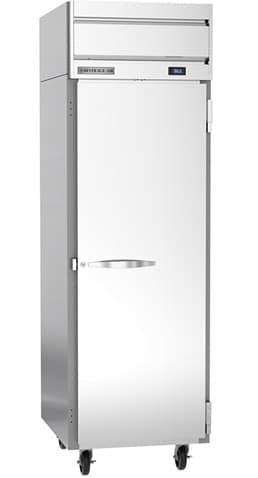
For steel doors with budget-friendly side construction, Beverage Air offers a solid collection
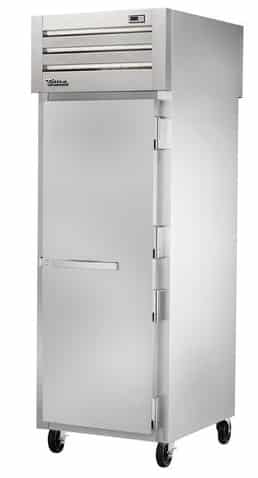
For an industry standard all-stainless steel model, check out the STR- line from the True® Spec Series®
The Interior
The last section to consider is arguably the toughest. With the most possible configurations—from an all-stainless steel interior; stainless steel top, bottom or sides only; or an all-aluminum interior—a customer has to find their own balance between better energy efficiency (aluminum) or better durability and cleanability (stainless steel).
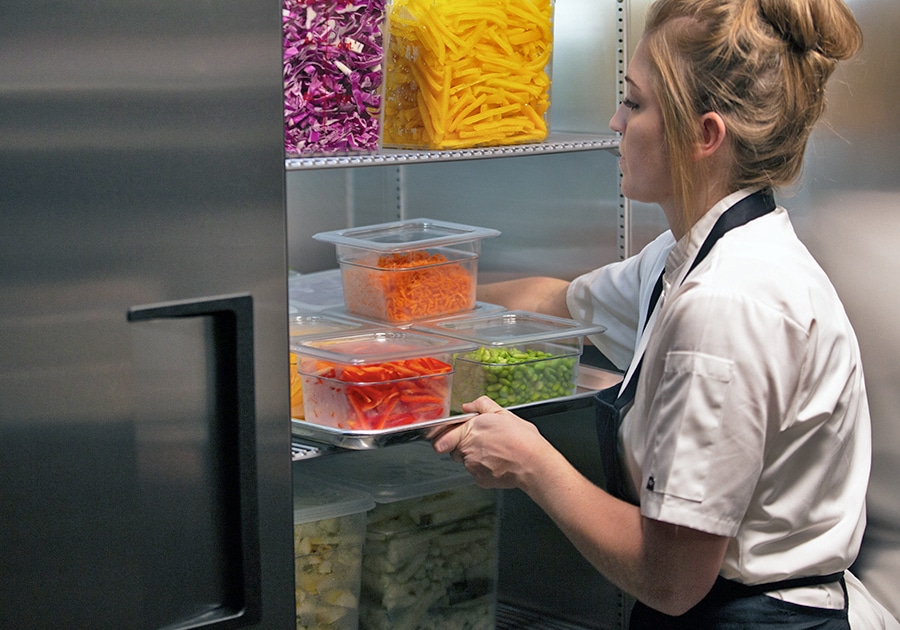
To understand why aluminum is more energy efficient, we’ll have to get microscopic again. Aluminum has more free electrons than stainless steel, giving it a better ability to conduct hot and cold temperatures across its surface. In our world, that means aluminum refrigerators get colder faster—a big help when constantly opening and closing your commercial unit.
You’ve already read about the durability and cleanability of stainless steel, so maybe it’s easiest to ask yourself how important these features are to the interior of your freezer or refrigerator.
Do you regularly splash prepped food inside your refrigerator, or store scratch-causing metal trays in your freezer? Then an all-stainless interior perimeter will work best for you. Usually have those prep items sealed tight in plastic containers and lids? Then there’s less of a chance that your aluminum interior will be a drawback.
Verdict: If you have energy efficiency on your mind and exacting food refrigeration practices, get an all-aluminum interior. For those opening and closing their unit less during a hot service or are less concerned about careful storage, some stainless will go a long way.
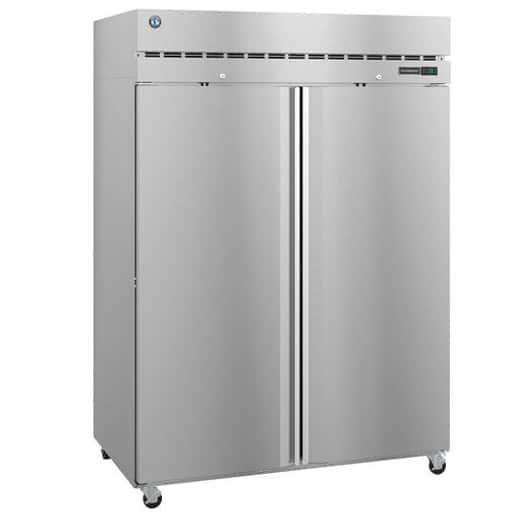
For an eco-friendly mix of aluminum or all-stainless interiors, check out Hoshizaki’s line-up of Uprights.
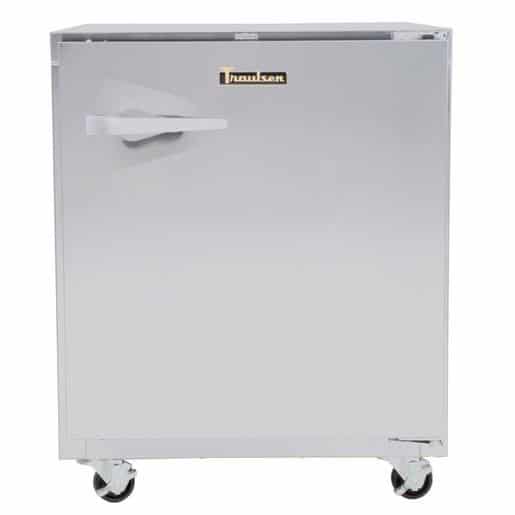
For undercounter units with full stainless exteriors and efficient aluminum interiors, Traulsen can’t be beat.
What Metal Works for You?
It’s easy to feel lost in the marketing funnel of endless refrigeration distributors that showcase only their 5-figure priced models. But, if you know that you can save quite a bit—usually 30% or more—by clicking the “Aluminum” option in those search navigation buttons, it can make the shopping process a lot less daunting.
Fully stainless steel units are awesome, make no mistake about it—but there’s no reason that a unit with some aluminum in key locations can’t be just as awesome for your kitchen.
Want to see all of our refrigeration options? Whether in the bar or the back-of-house, we have you covered.
You’ll find that many of our units, particularly Reach-Ins, have an option for installation and haul-away—so if getting rid of your old unit and the new one set in place is a hurdle for your business, be sure to check that out.
For discount options, you’ll want to regularly visit our Outlet Deals—our collection is constantly changing, so you never know when you’ll score a deal on your perfect refrigerator or freezer.
If you need some more help finding your perfect refrigerator or freezer, give us a call—not many folks will be more excited to talk refrigeration!

